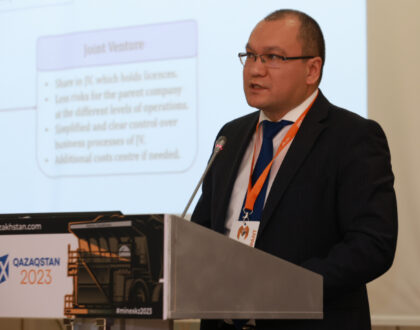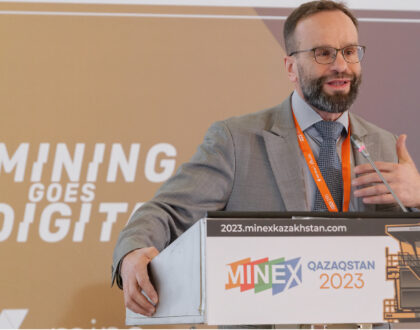Central Asia can become a center of clean energy

In the reform of the energy industry, which the governments of the countries of Central Asia have begun, private investment will have to play a key role in developing the economy and making the transition to clean energy, experts from the World Bank say.
Power outages across large parts of Central Asia in January 2022 served as a reminder that the region’s economy needs a reliable and sustainable energy supply. With economies and populations growing, Central Asian governments need to redouble their efforts to attract investment in energy infrastructure and its maintenance. At the same time, countries connected by a common system – which characterizes the post-independence Central Asian republics to a lesser extent – can, if necessary, receive electricity from neighboring states and meet their energy needs at a lower cost.
Over the past year, these tasks have become even more urgent. The war in Ukraine has caused turmoil in the energy markets, leading to a reduction in the already limited supply of natural gas, a surge in energy prices and, in many countries, an understanding of the need to rethink the structure of their energy mix. Abnormally low temperatures, observed in the countries of Central Asia this winter, only increase concern about this. With disruptions in energy supply chains and rising global energy prices, energy security is becoming one of the most important issues of our time.
The countries of Central Asia can meet this challenge, and the key to solving it is significant reserves of untapped and inexpensive renewable energy sources. To harness this rich potential, Central Asian governments need to accelerate national energy reform, thus creating conditions and opportunities for development partners and the private sector to invest in energy infrastructure with sufficient returns.
With massive investment, Central Asia could become a clean energy hub
Central Asia has the opportunity to become a clean energy hub in the energy transition and thus meet regional energy demand, which is expected to increase by more than 30% by 2030.
In 2021, about 80% of electricity in Central Asia was generated from fossil fuels – mainly coal and natural gas. Hydro generation accounts for about 90% of the energy supply in Tajikistan and 80% in the Kyrgyz Republic, and these countries have the potential to increase their hydropower generation by 10 and 25 times, respectively, making them major suppliers of low-cost renewable energy. Kazakhstan has huge wind energy resources and, along with the Kyrgyz Republic, Turkmenistan and Uzbekistan, has a huge potential for the development of solar generation.
The governments of the countries of the Central Asian region recognize the need to strengthen cooperation, develop trade and increase investment. Building trust in the electricity trade requires reforms to improve governance and transparency in the sector, strengthen planning systems, phase out fossil fuel subsidies, and expand generating capacity and network capacity. It is critical that these reforms be implemented with the most vulnerable groups in mind, including protecting vulnerable households from the effects of tariff adjustments. High inflation and rising food prices have left many households unable to pay for heating while meeting other basic needs. The implementation of reforms should be accompanied by active information campaigns.
The implementation of such reforms will help increase economic activity and increase the well-being of people in the region. The World Bank estimates that in order for the countries of Central Asia to be able to expand their renewable energy supply and modernize national and regional energy systems for the development of electricity trade over the next 5-10 years, they will need investments of at least $20 billion. Renewable energy projects already developed include: development of wind energy, integration of renewable energy sources into the energy system and modernization of hydroelectric power plants in Kazakhstan; large-scale hydropower projects and solar energy pilot projects in the Kyrgyz Republic and Tajikistan; the expansion of the power system, the modernization of distribution networks and the development of solar energy in Uzbekistan, as well as the modernization and expansion of cross-border interconnections.
Development of electricity trade and increased interconnectivity
A regional electricity market that includes various sources of generation can stabilize energy supply, stimulate the growth of national and regional economies, and support the process of decarbonization.
Despite the interconnectedness of the electricity transmission systems of the countries of Central Asia, only 2.5% of demand is currently met by electricity trade, which is only 40% of the interconnection capacity. This low volume of trade is due to the lack of a market platform, poor management of the regional network, aging infrastructure and poor coordination. Electricity trade within the framework of the Unified Energy System of Central Asia, established in the 1970s, relies mainly on bilateral agreements; Decisions tend to be made at the political level without regard to commercial considerations, and take a long time to develop and adopt.
The world has experience of successful regional electricity trade between countries of different levels of economic development. Thus, within the framework of the South African Energy Union, the short-term market has been successfully functioning for many years. The organization of regional markets for energy trading in the Nordic countries and the European Union has helped reduce the operating costs of energy providers and reduce the need for government support. Regional markets give countries the opportunity – with adequate idle capacity – to generate additional electricity and deliver it to the regional market, which contributes to the growth of export earnings. The production and trading of electricity from various sources stabilizes the operation of the regional energy system in the face of seasonal fluctuations and demand surges, thereby increasing its sustainability.
Designing and building regional markets is a technical challenge, and the World Bank’s experienced team of experts can help make this ambitious project a success for the entire region. To this end, the countries of Central Asia should at the political level indicate their readiness to develop regional cooperation in the energy sector, including the pilot and then full-scale implementation of market principles of electricity trade.
Cooperation to promote electricity trade and green growth
The World Bank is working with Central Asian governments to improve energy connectivity through investments, technical assistance, and capacity building activities.
Central to this initiative is a proposed day-ahead market pilot project that will model for a larger solution. The pilot project will test the concept and create incentives for cooperation, which will help to smooth out the uneven level of development of domestic markets in individual countries. The advantage of this flexible decentralized approach is that governments will be able to control their national markets and energy systems.
These and other issues were discussed at the Central Asian Trade and Investment Energy Forum, which was held on March 2-3 in London. It brought together senior Central Asian government officials, development partners and investors to discuss the interrelated issues of energy supply, decarbonization and economic growth.
The countries of Central Asia have all the prerequisites for achieving energy security through the more active use of renewable energy sources and the development of regional electricity trade. The amount of investment required is enormous, as are the investment opportunities. With coordination and active action, this region can become an example for other countries and regions facing similar challenges.
Authors: World Bank Regional Director for Central Asia Tatyana Proskuryakova and World Bank Regional Director for Infrastructure for Europe and Central Asia Charles Cormier.



